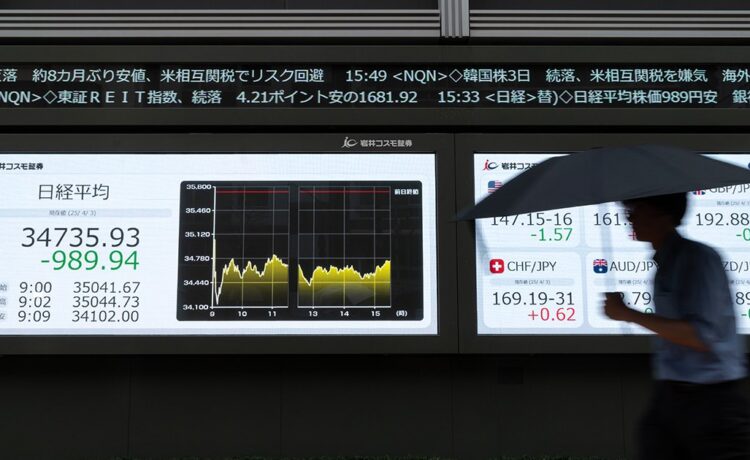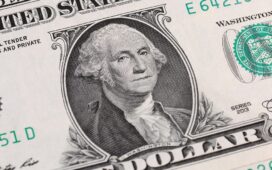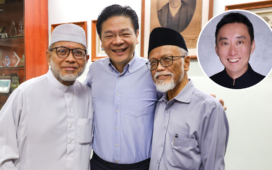Welcome to the Daily News Brief, CFR’s flagship morning newsletter summarizing the top global news and analysis of the day.
Subscribe to the Daily News Brief to receive it every weekday morning.
Top of the Agenda
More on:
Trump announced sweeping new tariffs on U.S. imports yesterday to effective levels unseen in a century. The announcement spurred alarmed reactions worldwide, in both markets and comments from U.S. trade partners. Asian and European stocks dropped following the announcement, and U.S. stocks fell sharply after today’s market open. The dollar slumped in currency trading. Treasury Secretary Scott Bessent told targeted countries yesterday to “take a deep breath” and said that “this is the high end of the number” they will face if they do not retaliate.
Foreign leaders react. Some countries nonetheless vowed to act:
- China’s trade ministry said Beijing“will take countermeasures to safeguard its own rights and interests.”
- European Commission President Ursula von der Leyen said that Brussels seeks to negotiate but is “preparing for further countermeasures” if talks fail.
- Canadian Prime Minister Mark Carney noted that Trump “preserved a number of important elements of our relationship” with the announcement, which did not impose new duties on Canada or Mexico. He added that Canada would “fight” previous U.S. tariffs with countermeasures.
Many hard-hit countries lamented Trump’s steps without directly threatening retaliation:
- South Korean acting President Han Duck-soo said that Seoul “must pour all its capabilities to overcome the trade crisis.”
- Japan’s trade minister called the measures “extremely regrettable.”
- Australian Prime Minister Anthony Albanese said the tariffs had “no basis in logic and they go against the basis of our two nations’ partnership. This is not the act of a friend.”
- Guatemala’s economy ministry warned that Trump’s new measures could be infringing a preexisting trade agreement with the United States.
- A spokesperson for the ruling party in Cambodia—which exports more to the United States than to anywhere else—said “as a small country, we just want to survive.”
More on:
The details of Trump’s measures. Trump declared a national emergency, which granted him special powers to enact the tariffs, saying the U.S. defense industrial base is “dependent on foreign adversaries.” He ordered:
- 10 percent tariffs on goods from all countries that will take effect this Saturday, April 5.
- Higher rates for around sixty countries, calculated based on their surpluses with the United States, on April 9. Those include 34 percent for China, 20 percent for the European Union, 27 percent for India, 24 percent for Japan, and 46 percent for Vietnam.
- Exemptions for goods such as copper, pharmaceuticals, lumber, and semiconductors, as well as energy and some minerals not available in the United States.
- Exemptions on goods that Trump has already hit with tariffs, such as steel.
- In a separate order, Trump ended a tariff exemption for low-value parcels from China.
Trump also left room for negotiation, saying that if other countries’ treatment of the United States is “satisfied, resolved, or mitigated,” the tariffs could be removed.
“We will all be parsing the details, but one thing is utterly clear: this is a U.S. declaration of economic war on the whole world.”
—CFR expert Edward Alden on X
Across the Globe
Israel’s plan to expand in Gaza. Israeli Prime Minister Benjamin Netanyahu and Defense Minister Israel Katz said yesterday the military would move further into Gaza. Netanyahu said Israel is “dividing up” the strip in order to pressure Hamas to release the remaining fifty-nine hostages, and Katz said a “large-scale” evacuation of the enclave’s population was planned amid renewed fighting. The top UN aid official for Gaza said yesterday that 64 percent of the territory “is under active forced displacement orders or falling within the so-called ‘buffer zone.’”
Myanmar cease-fire. The country’s military government announced yesterday it would temporarily halt hostilities to facilitate the delivery of earthquake aid, one day after a rebel alliance announced the same. The junta’s pause on operations will last until April 22, state media said. More than three thousand people have been reported dead after the disaster.
Turkish consumption boycott. After authorities jailed allies of detained opposition figure and Istanbul mayor Ekrem İmamoğlu and briefly detained his lawyer, opposition activists called for a one-day shopping boycott yesterday. The Istanbul state prosecutor’s office launched a criminal probe into the activists who called for the boycott, while Turkey’s media authority said it was considering investigating news organizations that covered it.
Hungary to exit ICC. The country plans to withdraw from the International Criminal Court, Prime Minister Viktor Orbán said today during Netanyahu’s state visit to Budapest. Hungary is the first country to host Netanyahu since the court issued a warrant for his arrest citing alleged crimes against humanity, which Netanyahu denies, and would be the first European country to pull out of the ICC. Orbán said it had “become a political court.”
U.S. indicts Ecuador gang boss. U.S. authorities indicted fugitive Ecuadorian José Adolfo Macías Villamar on seven counts including gun trafficking and smuggling drugs into the United States. Macías Villamar leads the gang Los Choneros and escaped from an Ecuadorian prison in 2024. Ecuador’s government classifies Los Choneros as a terrorist group and had recently increased its reward for information leading to Macías Villamar.
South Africa’s coalition troubles. Center-right party Democratic Alliance (DA) yesterday withheld its support from a high-stakes vote to pass the ruling African National Congress (ANC) proposed budget. The two parties have been governing in coalition after the ANC failed to secure a majority in an election last year, but the DA filed a legal challenge against the budget’s approval and made plans for emergency talks on whether it should leave the coalition.
Chinese leadership shake-up. Two members of China’s twenty-four-person Politburo governing committee swapped jobs, state media said. It did not issue an explanation for the unusual move, which comes after a string of changes in China’s senior leadership ranks in recent years. One official will now be responsible for internal personnel decisions, the other responsible for religious and ethnic minorities as well as China’s policies on Hong Kong and Taiwan.
Rubio’s NATO reassurances. The United States “is as active in NATO as it has ever been,” Secretary of State Marco Rubio said at the alliance’s foreign ministers meeting today. Trump has repeatedly said that European countries should take more responsibility for their security, but Rubio today said that Trump is “not against NATO.”. He added that all countries should be on a “realistic pathway” to reach up to 5 percent of GDP on defense. NATO Secretary General Mark Rutte, meanwhile, said that there were no plans for a “sudden” U.S. withdrawal from the region’s defense.
The Day Ahead
-
The first European Union-Central Asia Summit takes place in Uzbekistan.
-
Foreign ministers of Burkina Faso, Mali, and Niger visit Moscow.
-
Indian Prime Minister Narendra Modi visits Sri Lanka.
- South Korea’s Constitutional Court will rule on the potential removal of impeached President Yoon Suk Yeol from office.





